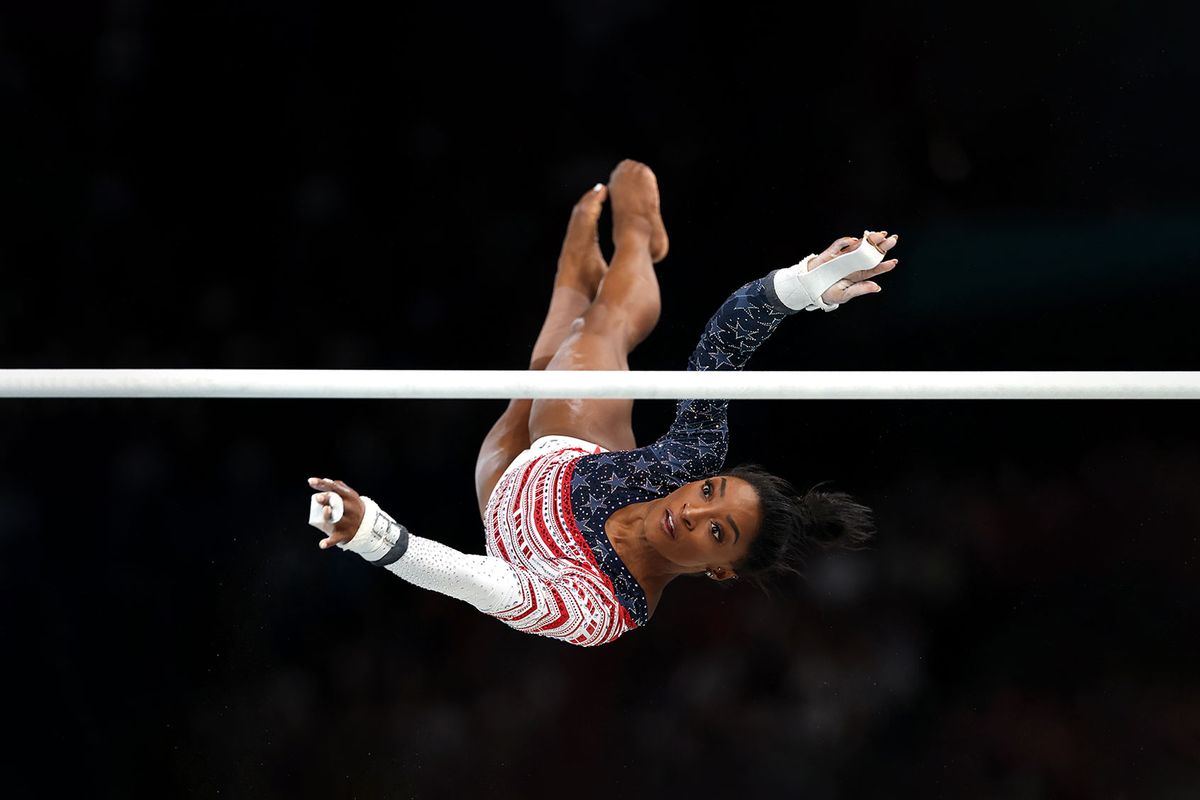On July 30, the U.S. women’s gymnastics snagged a gold medal in the team final of the Olympics. For gymnast Simone Biles, the win not only marked yet another Olympic medal — she has earned nine such medals and 30 World Championship medals, making her the most decorated gymnast in history — it also served as the perfect ending for her so-called “redemption tour” after suffering from the “twisties.”
According to Cleveland Clinic, the twisties are defined as “a mental block that creates a dangerous disconnect between mind and body while gymnasts are airborne.” As one can imagine, it can be very dangerous; Biles has previously described the condition as getting “lost” in the air. The mental health condition led Biles to withdraw from multiple events during the Tokyo 2020 Olympics.
“I knew from that very moment it wasn’t like one time and done. You can feel it in your head,” Biles said in the Netflix documentary “Simone Biles Rising.” Biles made the decision to prioritize her mental health. A case of the “twisties” has been compared to the so-called “yips,” which can happen in baseball and golf and was famously depicted in the Apple TV+ show “Ted Lasso.” The Mayo Clinic describes it as “a type of focal dystonia, a condition that causes involuntary muscle contractions during a specific task.”
“Some athletes become so anxious and self-focused — overthinking to the point of distraction — that their ability to perform a skill, such as putting, is impaired,” the Mayo Clinic states.
For professional, Olympic-level, athletes, it’s hard to imagine that after hours of training, and being one of the best in their sport in the world, a mental block can have such an effect on performance. But experts tell Salon it’s a testament to the power of the mind in sports. Jamie Shapiro, a certified mental performance consultant and professor of sport and performance psychology at the University of Denver, told Salon that athletes frequently give percentages of how much of their sport is mental and how much of it is physical. When it comes to high-pressure events like the Olympics, the mental arguably outweighs the physical.
“I consider those high-pressure moments to be extremely mental,” Shapiro said. “Whereas training, I would say, could be more physical than mental, but the mental piece always plays a part.”
“Stressors can bring on changes in our physiology.”
In gymnastics, gymnasts rely on spotting — meaning focusing on a space to orientate their positioning — to land twists and master balance.
“We call it the kinesthetic sense, if someone’s spotting the wall or the floor or the ceiling, as they’re twisting, they get an idea of where they are,” Shapiro said, adding that a gymnast might be looking for the floor as they’re about to land. “But when you have the twisties, that kinesthetic awareness, that sense of where your body is in space, is what’s off.”
Shapiro said there are some theories as to why this happens, but it mostly remains a mystery and varies from person to person.
Want more health and science stories in your inbox? Subscribe to Salon’s weekly newsletter Lab Notes.
“Sometimes an athlete can’t pinpoint a cause,” Shapiro said. “Other times, an athlete could think back to say that there was some sort of stressful event or accumulation of stressful events that may have led to that mental block or the twisties.”
In “Simone Biles: Rising,” Biles referred to her twisties at Tokyo as a “trauma response” to the abuse she endured by former team doctor, Larry Nassar, and its subsequent fallout.
Stephany Coakley, the senior associate athletic director for Mental Health Wellness and Performance at Temple and certified mental performance consultant, told Salon the twisties are usually caused by a stressful event.
“Stressors can bring on changes in our physiology,” Coakley said.
“You have to know yourself and then set boundaries.”
Psychologist Dr. Carla Manly, who has had athletes as clients in her private practice, told Salon the twisties can worsen because of anxiety. When athletes are in “flow” and have a strong “mind-body connection,” they tend to do their best, Manly said. But in the case of the twisties, one mistake can easily cascade.
“Maybe you make another mistake, and now it becomes sort of a self-fulfilling prophecy, and then you lose that confidence in your mental capacities and your physical capacities,” Manly said. “Now you’re in a fear-based loop where you’re focused not on the success, but on avoiding the failure.”
Avoidance is often a popular go-to coping strategy.
“That’s what you saw from Simone a few years ago — she took out her twisting elements because she couldn’t get that sense of awareness with her twisting back again,” Shapiro said. “With other gymnasts with mental blocks of tumbling backward, for instance, they do only front tumbling.”
Some people can get over the twisties, Shapiro said, but some never do. Clearly, Biles did. However, it didn’t happen overnight. Biles said she had to retrain and go to therapy.
For those who aren’t gymnasts or Olympic athletes, a case of the twisties might still feel relatable. Coakley said there is certainly something for everyone to learn from Biles raising awareness about gymnast-specific mental block.
“The first thing to learn is you have to know yourself,” Coakley said. “[Biles] knew that if she were to continue, she was going to hurt herself. You have to know yourself and then set boundaries.”
While stepping back might have been the hardest route for Biles to take, it’s the reason she was able to have her comeback.
“She was able to stop and take care of herself and set boundaries,” Coakley said.
Read more
about the Olympics
